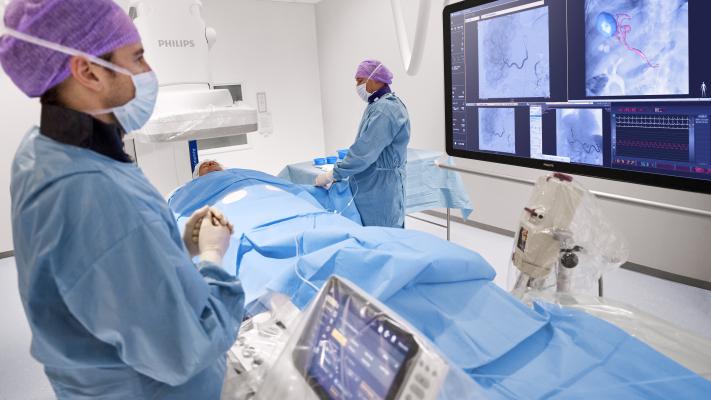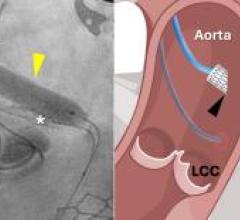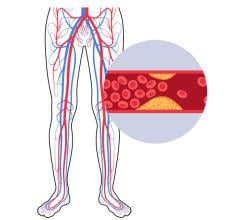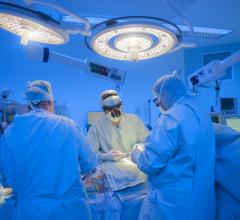
October 30, 2017 — New study results from the EXCEL trial comparing the quality of life (QoL) of patients with left main coronary artery disease (LMCAD) receiving percutaneous coronary intervention (PCI) versus coronary artery bypass graft surgery (CABG) found significant and similar QoL improvement at three years, although a greater benefit was observed with PCI at one month.
Findings were reported at the 29th annual Transcatheter Cardiovascular Therapeutics (TCT) scientific symposium, Oct. 29-Nov. 2 in Denver, sponsored by the Cardiovascular Research Foundation (CRF). The study was also published simultaneously in the Journal of the American College of Cardiology.
The EXCEL clinical trial randomized patients with LMCAD of low to intermediate complexity to undergo revascularization by PCI with a second-generation everolimus-eluting stent or CABG. Presented at TCT 2016 and published in the New England Journal of Medicine, rates of death, stroke and myocardial infarction were similar with both PCI and CABG at a median of three years. However, the timing of clinical events and rates of repeat revascularization differed between the two groups.
Of the 1,905 patients with LMCAD who were randomized to undergo CABG or PCI in the EXCEL trial, 1,788 participated in the QoL sub-study. QoL was assessed at baseline and one, 12 and 36 months using the Seattle Angina Questionnaire, the SF-12, the Rose Dyspnea Scale, the Patient Health Questionnaire-8 and the EQ-5D. Differences between PCI and CABG were assessed using longitudinal random-effect growth curve models.
In the PCI group, both disease specific and generic health status measures improved significantly by one month, and these improvements were largely sustained at 12 and 36 months. In contrast, patients assigned to CABG demonstrated only small improvements or even declines in health status on several scales (especially measures of physical limitation) at one month. However, by 12 and 36 months, health status had improved significantly across all scales in the CABG group to levels commensurate with the PCI group. In contrast to previous studies of PCI versus CABG, there was no evidence of preferential benefit of CABG in any patient subgroups.
“Among patients with LMCAD with low or intermediate coronary artery disease complexity, PCI using a second generation everolimus-eluting stent and CABG result in substantial and similar quality of life improvement through 36 months, with a greater early benefit observed with PCI,” said Suzanne J. Baron, M.D. with Saint Luke's Mid America Heart Institute in Kansas City, MO. “Taken together with the three-year clinical data from EXCEL, these results suggest that PCI and CABG provide comparable intermediate-term outcomes for appropriately selected patients. Further studies are needed to evaluate the durability of health status benefits with PCI compared to CABG beyond three years in patients with LMCAD.”
The EXCEL QOL trial was funded by a research grant from Abbott Vascular. Baron reported receiving consulting fees from Edwards Lifesciences and St. Jude Medical Inc., as well as travel reimbursement from Medtronic.
For more information: www.crf.org/tct
Related TCT Content
TCT Announces 2017 Late-breaking Clinical Trial Presentations
VIDEO: Stents, Bypass Surgery Have Equal Outcomes in EXCEL Trial


 January 15, 2026
January 15, 2026 









